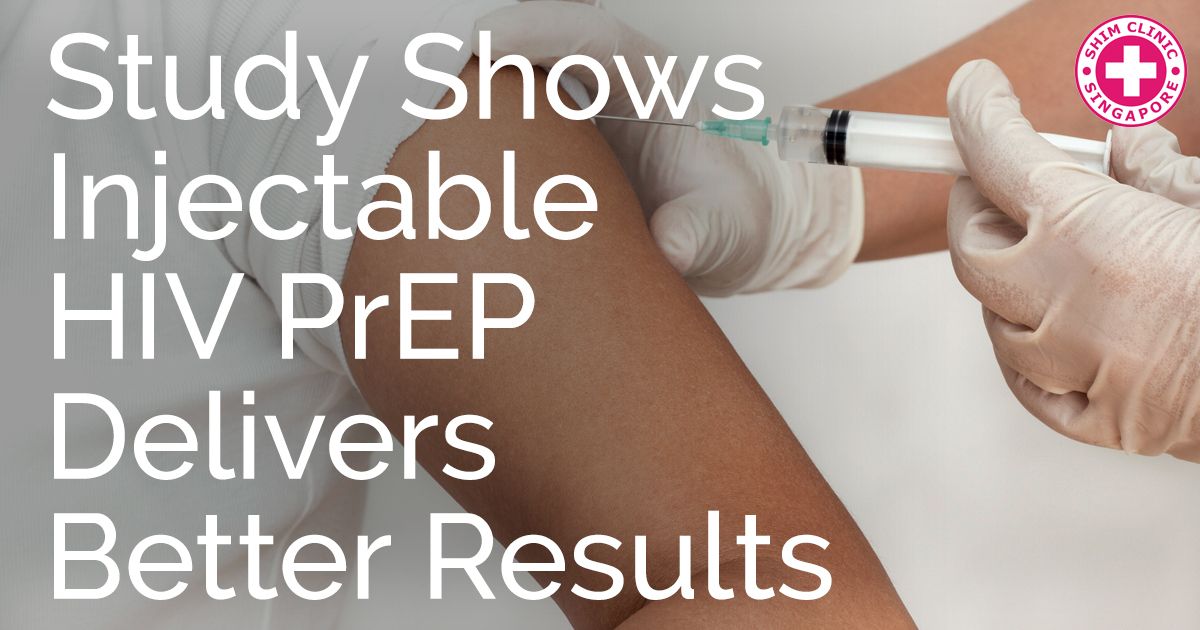HIV PrEP or pre-exposure prophylaxis has nearly revolutionized the prevention of the viral infection. When administered correctly, PrEP reduces the risk of getting HIV from intercourse by 99 per cent (when used consistently). Right now, there are at-risk individuals who have taken PrEP for up to five years without experiencing side effects.
But medical solutions are evolving all the time. Doctors and pharmaceutical companies are seeking opportunities to strengthen HIV prevention even further and that involves discovering stronger formulas and better ways to administer HIV PrEP.
During the 23rd International AIDS Conference (AIDS 2020: Virtual), some important new findings about the administration of HIV PrEP have been announced.
Does the Form of Administration Matter?
It appears that the way in which PrEP is administered indeed happens to be an important factor that correlates to the effectiveness of the medication.
The latest findings suggest that when administered as an injection every eight weeks, PrEP is more effective than preventing the HIV infection than the oral form of the medication. Information presented at the conference was originally published in mid-May 2020 and the results are based on a clinical trial involving 4,600 people.
In the study, participants were given the traditional oral form of PrEP (tenofovir disoproxil fumarate plus emtricitabine (TDF/FTC)) or an injectable form of the medication called cabotegravir.
Participants in the study belonged to multiple high risk groups. Of them, 50 became infected with HIV. Of the infected individuals, 12 were receiving the injectable PrEP and 38 were getting the TDF/FTC combination. These numbers correspond to an annual infection incidence rate of 1.21 per cent for the TDF/FTC group and only 0.38 per cent for those receiving the injectable cabotegravir.
What Makes Injectable PrEP More Effective?
Researchers are still speculating as to why injectable HIV PrEP could be delivering such significantly better results.
One of the theories pinpoints a really intriguing reason for the potential failure of oral PrEP and that’s poor adherence. When blood samples were taken from some of the volunteers, researchers found out that the level of medications in their blood were in no way indicative of taking the recommended at least four pills per week.
In other words, people often forget to take their meds.
Even when their life depends on strict adherence to a schedule, there will still be numerous individuals who’ll forget or who’ll simply be lax in terms of proper administration. For the time being, however, that’s just a theory. Researchers have also tried to find out why 12 people who were administered injectable PrEP became HIV-positive. One of the possible explanations was that they got infected during the lead-in phase. Alternatively, the levels of the active medication were not high enough in this particular subset. The study has given rise to numerous questions that will potentially be answered through further research in the future.
What’s interesting to point out is the fact that cabotegravir may persist in the body for a period of up to one year after the administration is discontinued. It’s still important to find out whether drug resistance is likely to develop in long-term use – something that researchers will need to account for.
Is Injectable HIV PrEP the Way to Go?
While the administration of an injectable medication that is showing such a high efficiency may seem like the way to go, there are still some issues in need of addressing first.
The clinical trial has shown that the administration of injectable PrEP is not as side effect free as the oral medication.
Of the participants in the study getting the injectable cabotegravir, 80 per cent complained of at least some side effects. In most instances, however, the unpleasant experiences were minor enough for participants to continue the treatment and not drop out of the study.
More Research on the Way
Research in the realm of HIV prevention and effective treatments is ongoing. During the conference, it became clear that a companion study to the one mentioned above is currently underway.
The study involves 3,200 cisgender women from sub-Saharan African countries. The results are anticipated in mid-2021 and once again, the trial will compare the effectiveness of injectable cabotegravir in comparison to the oral TDF/FTC combo.
An open-label extension to the study is also being discussed to get a more long-term view of the way in which the two forms of drug administration compare to each other.
At the time being, it’s certain that injectables are 66 per cent more effective than orally-administered PrEP medications.
If you are a high risk individual in Singapore, you can benefit from the currently available, safe and effective oral forms of HIV PrEP.
Medical facilities like Shim Clinic give patients access to the internationally-recognised and well-tolerated TDF/FTC combo. Additionally, Shim Clinic can also give you access to post-exposure prophylaxis or HIV PEP. Just like PrEP, HIV PEP is a combination of antiretroviral medications but it’s administered after an exposure. When taken soon enough and according to doctor recommendations, PEP is a highly effective form of prevention.
To learn more about HIV PEP or PrEP, please get in touch with Shim Clinic today or visit us during working hours every single day of the week.

